Maximizing Energy Conservation: The Benefits for a Sustainable Future

The Foundation of Sustainable Living
In an era dominated by concerns about environmental sustainability, one of the most impactful contributions individuals can make is through energy conservation. Embracing practices that reduce energy consumption not only leads to immediate cost savings but also plays a crucial role in building a sustainable and eco-friendly future.
Lowering Utility Bills through Efficiency
A primary benefit of energy conservation is the immediate impact on utility bills. By adopting energy-efficient technologies and practices, homeowners can significantly reduce their monthly energy expenses. Simple measures, such as using energy-efficient appliances, properly insulating homes, and sealing drafts, contribute to lower energy consumption and, consequently, more manageable utility costs.
Environmental Impact and Carbon Footprint Reduction
Beyond financial benefits, energy conservation has a profound positive effect on the environment. Reduced energy consumption means lower demand for fossil fuels, which are major contributors to greenhouse gas emissions. By lowering our carbon footprint, we actively participate in mitigating climate change and preserving the planet for future generations.
Enhancing Energy Security
Energy conservation is intricately linked to energy security. By using less energy, communities become less dependent on external energy sources, reducing vulnerability to energy supply disruptions. Localized efforts in energy conservation contribute to a more resilient and secure energy infrastructure, safeguarding against potential crises.
The Role of Renewable Energy Integration
While energy conservation primarily focuses on reducing consumption, it goes hand in hand with the adoption of renewable energy sources. Transitioning to solar, wind, or other renewable sources complements conservation efforts by providing clean energy alternatives. This dual approach amplifies the overall impact on environmental sustainability and helps create a diversified, resilient energy portfolio.
Fostering Innovation and Technological Advancements
Embracing energy conservation fosters a culture of innovation and technological advancements. As individuals and businesses seek more efficient ways to use energy, the demand for innovative solutions increases. This, in turn, fuels the development of cutting-edge technologies, creating a positive cycle of progress towards a more sustainable energy landscape.
Economic Benefits for Businesses and Industries
Energy conservation isn’t solely a concern for individual homeowners; businesses and industries also stand to gain significant benefits. Implementing energy-efficient practices within industrial processes not only reduces operating costs but also enhances competitiveness. Additionally, a commitment to sustainability can improve a company’s public image and attract environmentally conscious consumers.
Government Incentives and Policies
Many governments worldwide recognize the importance of energy conservation and offer incentives and policies to encourage its adoption. From tax credits for energy-efficient home improvements to grants for businesses investing in sustainable practices, these initiatives create a supportive environment for individuals and organizations to prioritize energy conservation.
Educating and Empowering Communities
A crucial aspect of the energy conservation movement is community education. Empowering individuals with knowledge about energy-efficient practices and their benefits creates a ripple effect. As more people adopt these practices, the collective impact grows, further contributing to a culture of sustainability and responsible energy use.
Energy Conservation Benefit: A Holistic Approach
Energy conservation is not a singular effort but a holistic approach that intertwines individual actions, technological advancements, and supportive government policies. By understanding the multifaceted benefits of energy conservation, we pave the way for a more sustainable future. To explore practical ways to integrate energy conservation into your lifestyle, check out Energy Conservation Benefit for valuable insights and resources.
Conclusion: A Greener Tomorrow Starts Today
In conclusion, the benefits of energy conservation extend far beyond cost savings. From environmental preservation and energy security to economic advantages and technological progress, the impact of energy conservation is profound and far-reaching. Embracing a sustainable lifestyle today not only benefits us individually but also contributes to building a greener, healthier tomorrow.
Maximizing Savings: Unveiling Solar Panel Benefits

Maximizing Savings: Unveiling Solar Panel Benefits
Solar panels have emerged as a revolutionary solution, not only for environmentally conscious individuals but also for those looking to maximize savings on their energy bills. The numerous benefits associated with solar panels make them a compelling choice for homeowners. In this article, we’ll delve into the advantages of solar panels and how they contribute to both financial savings and a sustainable future.
Harnessing Solar Energy for Savings
The primary benefit of solar panels lies in their ability to harness renewable energy from the sun. Solar panels convert sunlight into electricity, offering a clean and sustainable power source. By tapping into this natural resource, homeowners can significantly reduce their reliance on traditional grid electricity, leading to substantial cost savings in the long run.
Reduced Energy Bills: A Tangible Advantage
One of the most immediate and tangible benefits of solar panels is the reduction in energy bills. By generating your own electricity, you can lower or even eliminate your monthly electricity expenses. This financial relief can be especially significant over the lifespan of the solar panel system, providing homeowners with more disposable income to allocate to other priorities.
Government Incentives and Tax Credits
Governments worldwide recognize the importance of transitioning to renewable energy sources. As a result, many offer incentives and tax credits to encourage the adoption of solar panels. These financial perks can offset the initial investment in solar panels, making the switch to solar even more attractive and financially feasible for homeowners.
Increased Home Value
Investing in solar panels can enhance the overall value of your home. Potential buyers are increasingly seeking energy-efficient features, and a solar panel system is a valuable addition. Homes with solar panels not only stand out in the real estate market but also command higher prices, providing a return on investment beyond the energy savings.
Environmental Impact: A Sustainable Choice
Beyond financial benefits, choosing solar panels contributes to a more sustainable and eco-friendly lifestyle. Solar energy is a clean and renewable resource that reduces greenhouse gas emissions and dependency on fossil fuels. By adopting solar panels, homeowners actively participate in mitigating climate change and preserving the environment for future generations.
Energy Independence and Security
Solar panels provide a degree of energy independence by allowing homeowners to generate their electricity. This self-sufficiency becomes particularly advantageous during power outages or disruptions to the grid. Solar-powered homes can continue to operate, ensuring a constant power supply and increased energy security.
Low Maintenance and Longevity
Solar panels are known for their durability and low maintenance requirements. Once installed, they have a long lifespan, often exceeding 25 years. With minimal upkeep, such as regular cleaning and occasional inspections, solar panels can continue to generate electricity efficiently, ensuring a reliable and long-term source of energy savings.
Technological Advancements: Improving Efficiency
Ongoing advancements in solar technology continue to improve the efficiency and affordability of solar panels. Innovations in design and manufacturing processes lead to more cost-effective installations and increased energy output. Staying informed about these advancements allows homeowners to make informed decisions and benefit from the latest technological improvements.
Community and Global Impact
By embracing solar panels, homeowners become part of a larger movement towards sustainability. The collective adoption of solar energy at the community level contributes to a reduction in overall carbon emissions. Each household’s commitment to solar power has a ripple effect, fostering a cleaner environment and a more sustainable energy future globally.
Conclusion: A Bright Future with Solar Panel Benefits
In conclusion, the benefits of solar panels extend far beyond financial savings. From reducing energy bills and increasing home value to contributing to a cleaner environment, solar panels offer a multitude of advantages. Embracing solar energy not only makes economic sense but also aligns with a commitment to a more sustainable and responsible way of living. To learn more about the myriad benefits of solar panels, visit SolarHelp.info for comprehensive insights and guidance on harnessing the power of the sun for a brighter future.
Sustainable Solar Home: Green Energy for Tomorrow
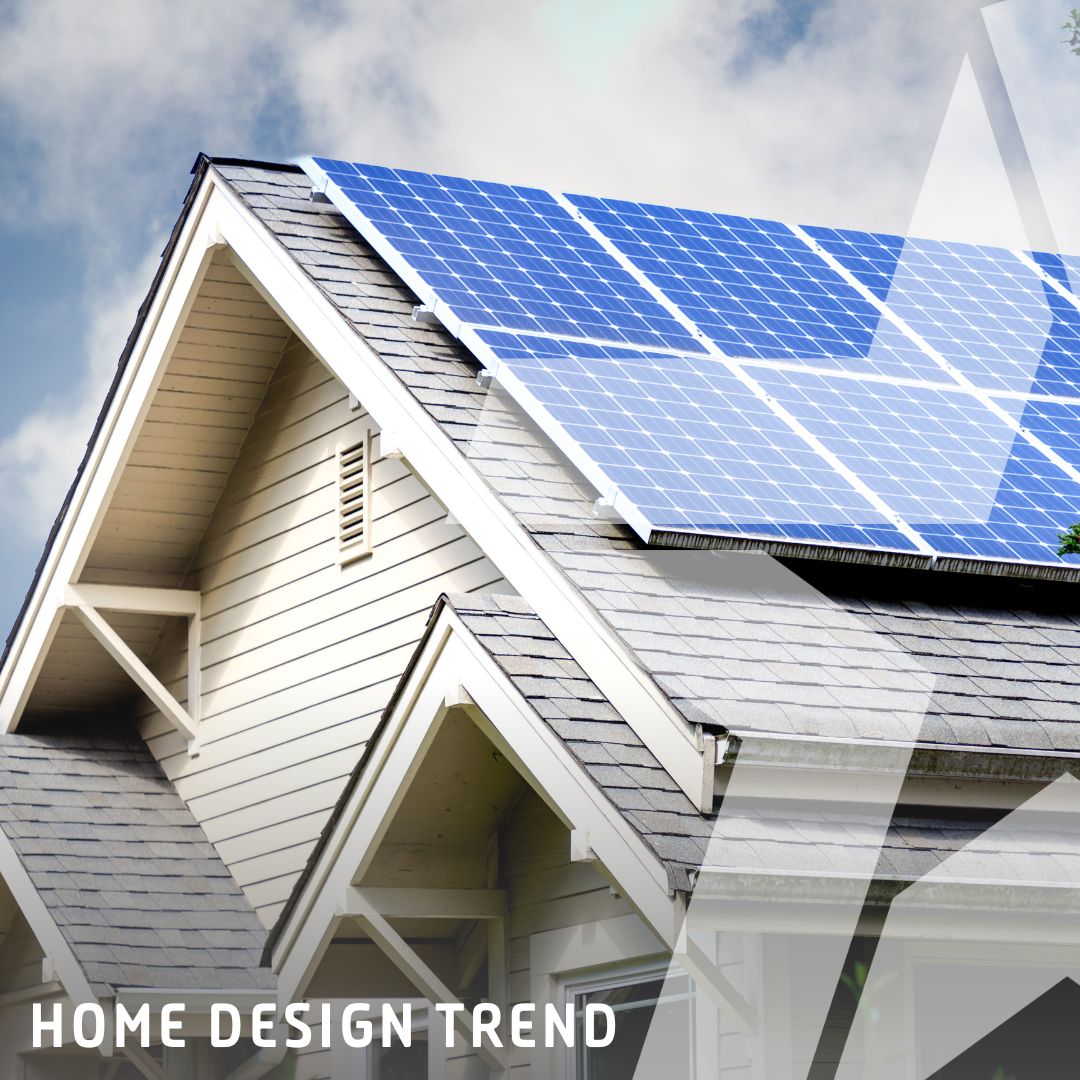
Sustainable Solar Home: Green Energy for Tomorrow
Living in a sustainable solar home is not just a trend but a commitment to a greener and more eco-friendly lifestyle. In this article, we’ll explore the concept of a sustainable solar home and how integrating solar energy can bring about a positive change for the environment and homeowners.
Harnessing the Power of the Sun
At the core of a sustainable solar home is the utilization of solar energy. Solar panels, installed on rooftops or in dedicated solar arrays, capture sunlight and convert it into electricity. This renewable energy source is abundant, clean, and sustainable, making it an ideal choice for environmentally conscious homeowners.
Reducing Environmental Impact
One of the primary advantages of a sustainable solar home is its significant contribution to reducing the environmental impact. Solar energy is a clean and green alternative to traditional electricity generation, eliminating the need for fossil fuels and reducing greenhouse gas emissions. By choosing solar power, homeowners play a crucial role in mitigating climate change and promoting a healthier planet.
Sustainable Solar Home: For comprehensive insights into adopting solar energy and transforming your home, visit Sustainable Solar Home. The website offers expert advice, tips, and articles to guide you on the path to a more sustainable and energy-efficient home.
Energy Independence and Cost Savings
A sustainable solar home provides energy independence by generating electricity on-site. This not only reduces reliance on external energy sources but also insulates homeowners from fluctuating energy prices. Over time, the initial investment in solar panels pays off through significant cost savings on electricity bills, making it a financially sound decision.
Net Metering and Excess Energy
Many sustainable solar homes benefit from net metering programs, allowing them to feed excess energy back into the grid. When solar panels generate more electricity than needed, homeowners can earn credits or receive compensation for the surplus energy. This fosters a symbiotic relationship between homeowners and the grid, contributing to a more efficient energy ecosystem.
Increased Property Value
Investing in solar panels enhances the value of a property. Sustainable features, such as solar energy systems, are attractive to homebuyers who value eco-friendly living and reduced utility costs. A sustainable solar home becomes an asset in the real estate market, reflecting a commitment to environmental responsibility and long-term cost savings.
Technological Advancements in Solar
Ongoing technological advancements in solar energy systems improve efficiency and affordability. Innovations in solar panel design, energy storage solutions, and smart grid integration contribute to the optimal performance of sustainable solar homes. Staying informed about these advancements allows homeowners to benefit from the latest innovations in solar technology.
Government Incentives and Rebates
Governments worldwide recognize the importance of transitioning to sustainable energy sources. Many offer incentives and rebates to encourage homeowners to adopt solar energy. These incentives may include tax credits, grants, or favorable financing terms. Exploring available government programs makes the transition to a sustainable solar home more accessible and cost-effective.
Resilience in Power Outages
Sustainable solar homes equipped with energy storage systems gain resilience in the face of power outages. Batteries store excess energy generated during sunny periods, providing a backup power source during cloudy days or grid failures. This enhances the reliability of energy supply, ensuring uninterrupted power for essential appliances and systems.
Educational Resources for Solar Integration
Transitioning to a sustainable solar home involves a learning curve. Educational resources play a vital role in providing information on solar integration, system maintenance, and optimizing energy usage. Homeowners can benefit from workshops, guides, and online resources to enhance their understanding of solar energy and its practical applications.
Community Engagement and Solar Initiatives
Engaging with the community amplifies the impact of sustainable solar homes. Participating in local solar initiatives, sharing experiences, and promoting solar adoption within the community contribute to a collective effort in creating a more sustainable and solar-powered future.
Sustainable Solar Home: A Bright Future
In conclusion, a sustainable solar home represents more than just an energy-efficient dwelling; it signifies a commitment to a brighter and greener future. By harnessing the power of the sun, homeowners contribute to environmental conservation, reduce costs, and increase the resilience of their homes. Explore Sustainable Solar Home for expert guidance, tips, and resources on adopting solar energy and transforming your home into a beacon of sustainable living.
Eco Utopia: Unveiling Clean Energy Benefits

Eco Utopia: Unveiling Clean Energy Benefits
Clean energy isn’t just a buzzword; it’s a transformative force shaping the future of energy consumption. This article explores the wide-ranging benefits of clean energy, from environmental stewardship to economic advantages and beyond.
Environmental Stewardship Through Clean Energy
One of the primary benefits of clean energy is its positive impact on the environment. Unlike traditional energy sources that rely on fossil fuels, clean energy options such as solar, wind, and hydroelectric power generate electricity with minimal or no greenhouse gas emissions. This reduction in carbon footprints plays a crucial role in mitigating climate change and preserving ecosystems.
Renewable Resources: The Foundation of Clean Energy
At the heart of clean energy are renewable resources that can be naturally replenished. Solar power harnesses sunlight, wind energy captures the power of breezes, and hydropower utilizes flowing water. Embracing these renewable resources ensures a continuous and sustainable energy supply, reducing dependence on finite fossil fuels and contributing to a cleaner energy landscape.
Economic Advantages of Clean Energy
Clean energy brings significant economic advantages, both at the individual and societal levels. Investing in clean energy technologies, such as solar panels or wind turbines, often leads to long-term cost savings. Government incentives, tax credits, and subsidies further enhance the economic viability of clean energy adoption, making it an attractive and financially prudent choice.
Job Creation and Economic Growth
The clean energy sector is a significant driver of job creation and economic growth. As the demand for renewable energy technologies rises, so does the need for skilled workers in manufacturing, installation, maintenance, and research. Investing in clean energy projects stimulates economic activity, fostering innovation and job opportunities within communities.
Energy Independence and National Security
Clean energy contributes to energy independence by diversifying the sources of power. Relying less on imported fossil fuels enhances a nation’s energy security. By investing in local and renewable resources, countries can reduce vulnerability to geopolitical uncertainties and volatile global energy markets.
Technological Advancements and Innovation
The pursuit of clean energy has spurred technological advancements and innovation. Research and development in the clean energy sector lead to more efficient solar panels, advanced wind turbine designs, and improved energy storage solutions. These innovations not only enhance the performance of clean energy systems but also drive progress across various technological domains.
Reducing Air and Water Pollution
Traditional energy sources, such as coal and oil, contribute to air and water pollution. In contrast, clean energy technologies produce electricity with minimal pollution. Transitioning to clean energy helps improve air quality, reducing respiratory illnesses and the environmental degradation caused by pollutants. It also lessens the strain on water resources, benefiting ecosystems and human health.
Community and Social Benefits
Clean energy projects often bring about positive social impacts within communities. From reducing air pollution-related health issues to providing access to clean energy in underserved areas, the benefits extend beyond environmental and economic considerations. Clean energy initiatives foster community engagement, improve quality of life, and contribute to a more equitable society.
Educational Outreach and Awareness
Promoting clean energy involves educational outreach and raising awareness about its benefits. Community programs, school initiatives, and public campaigns play a crucial role in informing individuals about the advantages of clean energy. This educational aspect empowers people to make informed choices and actively participate in the transition to a cleaner and more sustainable energy future.
Clean Energy Benefit: A Link to a Sustainable Future
Ready to experience the transformative power of clean energy? Visit Clean Energy Benefit for valuable resources and insights. Discover how embracing clean energy not only benefits the environment and economy but also serves as a fundamental link to a more sustainable and eco-friendly future.
In conclusion, the benefits of clean energy are far-reaching and encompass environmental, economic, and societal dimensions. Embracing clean energy isn’t just about finding alternatives to traditional power sources; it’s about shaping a future where energy consumption aligns with the principles of sustainability and environmental responsibility. The link between eco utopia and clean energy reveals a vision of a world powered by innovation, economic vitality, and a commitment to preserving the planet for future generations.
Renewable Home Power: A Sustainable Energy Solution
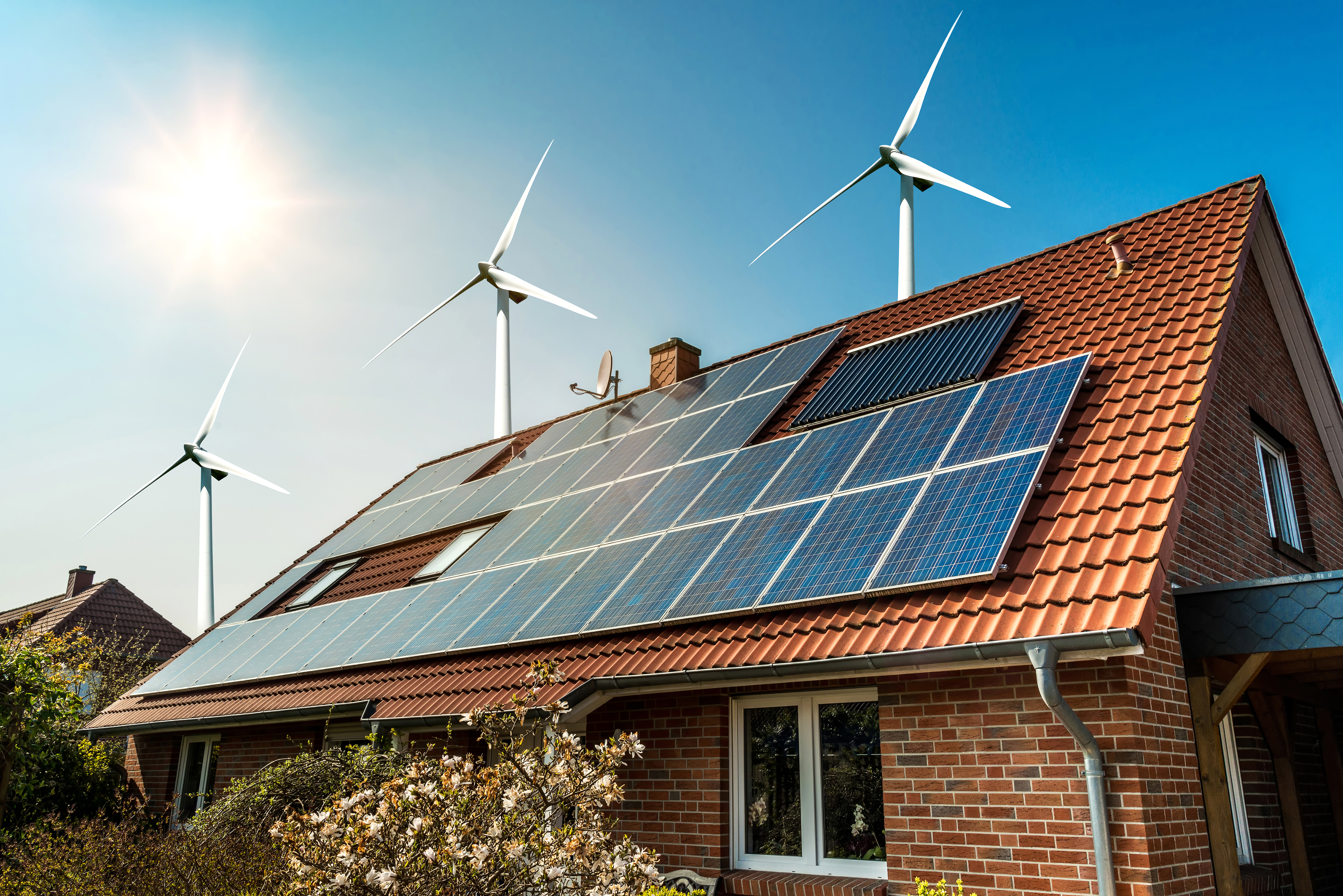
Renewable Home Power: A Sustainable Energy Solution
Renewable home power is revolutionizing the way we meet our energy needs, offering a sustainable alternative to conventional sources. In this article, we will explore the benefits and considerations of adopting renewable energy solutions for your home.
Harnessing the Power of the Sun
Solar energy stands out as a leading source of renewable home power. Solar panels, mounted on rooftops or in dedicated arrays, capture sunlight and convert it into electricity. This clean and abundant source of energy not only reduces reliance on non-renewable resources but also contributes to a lower carbon footprint.
Wind Power: Tapping into a Constant Resource
Another significant contributor to renewable home power is wind energy. Wind turbines, strategically positioned to harness the wind’s kinetic energy, generate electricity. Wind power is a constant and reliable resource, making it a valuable addition to the renewable energy mix for homes, especially in regions with consistent wind patterns.
Hydropower for Sustainable Energy
Hydropower utilizes the energy of flowing water to generate electricity. While large-scale hydropower plants are common, smaller-scale systems can be implemented in homes. Micro-hydro systems can be installed in areas with access to flowing water, providing a continuous and sustainable source of renewable power.
Benefits of Adopting Renewable Home Power
Switching to renewable home power comes with a multitude of benefits. One of the most significant advantages is the reduction of greenhouse gas emissions. Unlike traditional fossil fuels, renewable energy sources produce minimal to no carbon emissions during electricity generation, contributing to a cleaner and healthier environment.
Financial Incentives and Long-Term Savings
Governments and utility companies often offer financial incentives to encourage homeowners to adopt renewable home power. These incentives may include tax credits, rebates, or favorable financing terms for installing solar panels or other renewable energy systems. Additionally, the long-term savings on energy bills make the initial investment in renewable power financially attractive.
Energy Independence and Security
Renewable home power provides a degree of energy independence. By generating your electricity, you become less reliant on external sources and the vulnerability of power grid disruptions. This energy security becomes especially crucial during emergencies or power outages, ensuring a continuous power supply for your home.
Technological Advancements and Efficiency
Ongoing technological advancements in renewable energy systems enhance their efficiency and affordability. Innovations in solar panel design, wind turbine technology, and energy storage solutions contribute to more cost-effective and high-performing systems. Staying informed about these advancements allows homeowners to benefit from the latest innovations.
Considerations and Challenges
While renewable home power presents numerous benefits, there are considerations and challenges to address. The initial cost of installing solar panels or wind turbines can be a barrier for some homeowners, despite long-term savings. Additionally, factors such as weather patterns and geographic location can impact the effectiveness of renewable energy systems.
SolarHelp.info: Your Guide to Renewable Home Power
For comprehensive insights, guidance, and resources on adopting renewable home power, visit Renewable Home Power. The website offers expert advice, tips, and articles to help you make informed decisions about transitioning to sustainable energy solutions. Explore SolarHelp.info for a comprehensive guide to renewable home power and take the first step towards a greener and more sustainable future.
Achieving Grid Independence for Sustainable Living
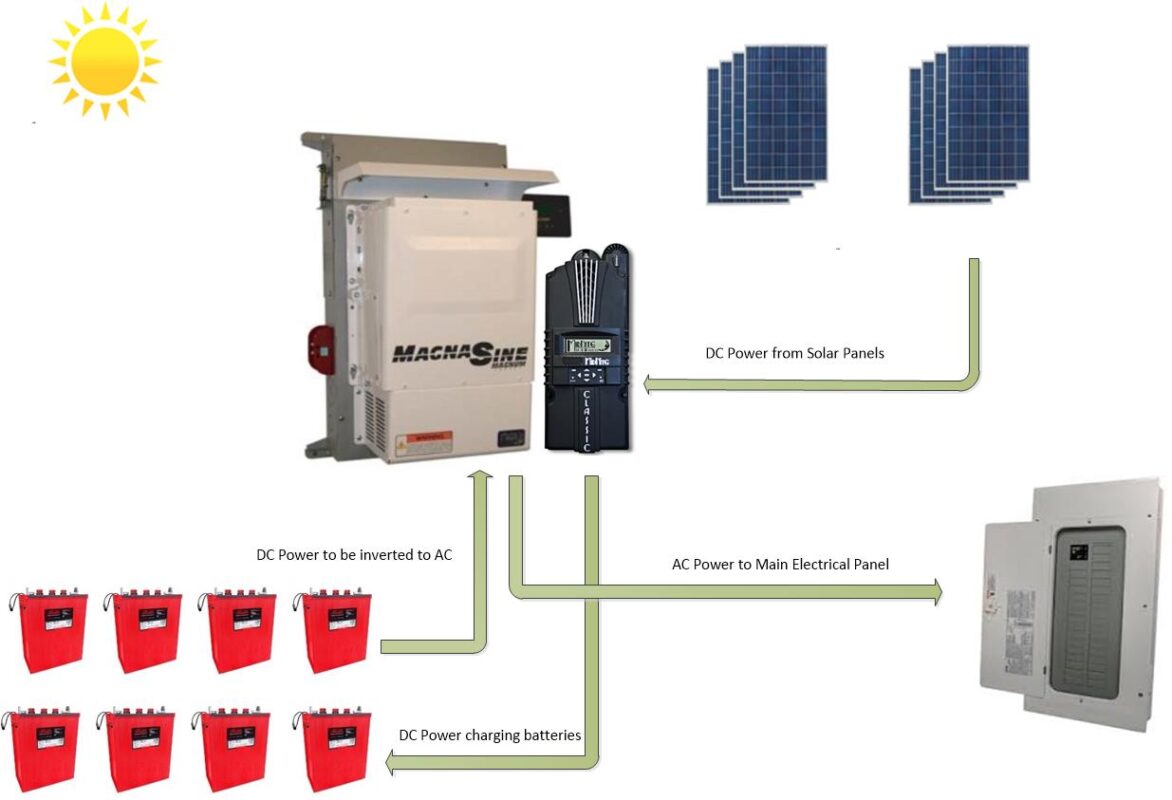
Embracing Sustainability Through Grid Independence
In a world where sustainability is gaining paramount importance, the concept of achieving grid independence is emerging as a powerful and transformative approach. This article explores the myriad benefits of grid independence and how it contributes to a more sustainable and resilient lifestyle.
Understanding Grid Independence
Grid independence refers to the ability of a home or a community to generate and manage its own power without relying on the traditional electric grid. This entails harnessing renewable energy sources and implementing energy-efficient practices to meet the energy needs of the household or community.
Reducing Dependence on Fossil Fuels
One of the primary benefits of grid independence is the significant reduction in dependence on fossil fuels. Traditional energy sources contribute to environmental degradation and climate change. By transitioning to renewable energy sources like solar or wind power, individuals and communities can play a vital role in mitigating the impact of climate change.
Harnessing the Power of Solar Energy
Solar power stands out as a cornerstone in achieving grid independence. Installing solar panels allows homes and businesses to generate electricity from the sun, reducing reliance on conventional power sources. This transition not only contributes to sustainability but often results in long-term cost savings, making solar energy a compelling choice.
Ensuring Energy Resilience
Grid independence enhances energy resilience, particularly during times of grid outages or disruptions. Homes with solar panels and energy storage solutions can continue to operate independently, ensuring a stable power supply even when the grid faces challenges. This resilience is crucial for maintaining essential services and a comfortable living environment.
Economic Benefits for Individuals and Communities
Beyond environmental considerations, grid independence offers economic benefits. Homeowners and communities can experience reduced energy bills over time as they generate their own power. In some cases, excess energy can be fed back into the grid, providing opportunities for financial incentives or credits from utility companies.
Community-Level Grid Independence
The concept of grid independence extends beyond individual homes to entire communities. Community-level initiatives involve shared resources and collaborative efforts to establish sustainable energy practices. This approach fosters a sense of collective responsibility and resilience, creating more robust and sustainable neighborhoods.
Government Support and Incentives
Governments worldwide recognize the importance of transitioning towards grid independence. Many countries offer support and incentives to individuals and communities embracing renewable energy. These incentives may include tax credits, rebates, or favorable financing options, making the transition to grid independence more accessible.
Educating for Grid Independence
Education plays a crucial role in promoting grid independence. Individuals and communities need information about available technologies, government incentives, and the environmental benefits of transitioning to renewable energy. Educational initiatives can empower people to make informed choices and actively participate in the shift towards sustainability.
Technological Advancements in Grid Independence
Technological advancements contribute significantly to the feasibility of grid independence. Improved energy storage solutions, smart grid technologies, and innovations in renewable energy systems enhance the efficiency and reliability of grid-independent setups. Staying informed about these advancements allows individuals and communities to make strategic decisions for sustainable living.
Grid Independence Benefit: A Link to a Sustainable Future
In conclusion, the benefit of grid independence extends far beyond personal or community-level advantages. It is a powerful link to a sustainable future where environmental stewardship, economic benefits, and energy resilience converge. Explore more about Grid Independence Benefit at SolarHelp.info and join the journey towards a more sustainable and resilient world.
Sunlit Living: The Solar-Powered Home Advantage
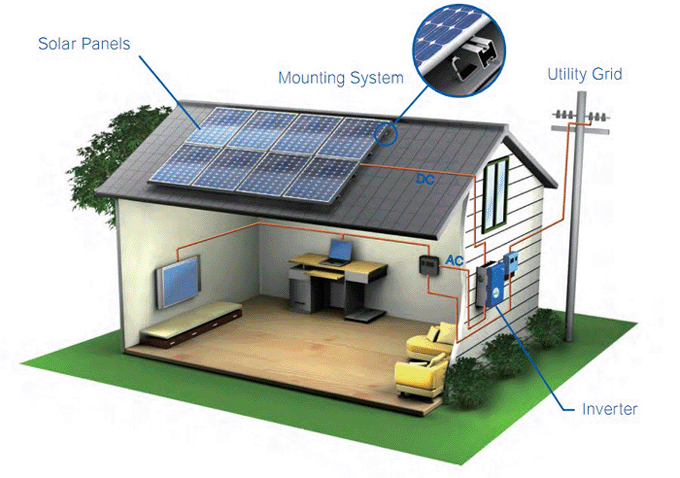
Sunlit Living: Unveiling the Solar-Powered Home Advantage
The concept of a solar-powered home has evolved from a niche interest to a mainstream solution, transforming the way we approach energy consumption and environmental impact. In this article, we explore the various facets of the solar-powered home, showcasing the advantages it brings to homeowners and the planet.
1. Harnessing Solar Energy: A Sustainable Revolution
At the core of a solar-powered home is the utilization of solar panels to harness energy from the sun. This sustainable approach to energy generation taps into an abundant and renewable resource, reducing dependence on traditional, non-renewable sources. Homeowners with solar panels contribute to a cleaner and greener energy landscape.
2. Lowering Utility Bills: Economic Benefits
One of the immediate advantages of a solar-powered home is the potential for significant cost savings on utility bills. Solar panels generate electricity from sunlight, allowing homeowners to offset or even eliminate their reliance on grid power. Over time, this translates into substantial economic benefits as utility costs decrease, providing a return on the initial investment.
Solar-Powered Home: Discover the advantages of solar energy for your home at Solar-Powered Home. Learn how solar panels can transform your living space and contribute to a sustainable future.
3. Environmental Impact: Reducing Carbon Footprints
The environmental impact of a solar-powered home cannot be overstated. By generating clean energy and reducing dependence on fossil fuels, homeowners significantly diminish their carbon footprints. This contribution to environmental sustainability plays a crucial role in mitigating climate change and preserving the planet for future generations.
4. Energy Independence: Empowering Homeowners
A solar-powered home grants homeowners a degree of energy independence. By producing their electricity, homeowners become less reliant on external energy sources, mitigating the effects of power outages and reducing vulnerability to fluctuations in energy prices. This empowerment aligns with the broader trend of decentralizing energy production.
5. Government Incentives: Making Solar More Accessible
Governments worldwide are encouraging the adoption of solar energy through various incentives. These may include tax credits, rebates, and other financial incentives designed to offset the initial costs of installing solar panels. As a result, the transition to a solar-powered home becomes more financially accessible for a broader range of homeowners.
6. Increased Property Value: A Smart Investment
A solar-powered home often commands a higher market value. The addition of solar panels is seen as a smart investment that appeals to environmentally conscious buyers. This increased property value not only benefits homeowners if they decide to sell but also adds to the overall appeal of sustainable living practices in the real estate market.
7. Technological Advancements: Efficiency and Integration
Advancements in solar technology have made solar panels more efficient and aesthetically appealing. Modern solar panels are designed to integrate seamlessly into the architecture of a home while maximizing energy production. These technological improvements enhance the overall efficiency and attractiveness of adopting solar power.
Conclusion: Embracing a Sustainable Lifestyle
In conclusion, the solar-powered home represents more than just a technological innovation; it signifies a shift towards a sustainable lifestyle. From economic benefits and reduced environmental impact to increased property value and energy independence, the advantages of embracing solar energy are far-reaching. As technology continues to advance and awareness grows, the solar-powered home is poised to play a central role in fostering a cleaner, more sustainable future.
Sustainable Home Power: Green Energy Solutions
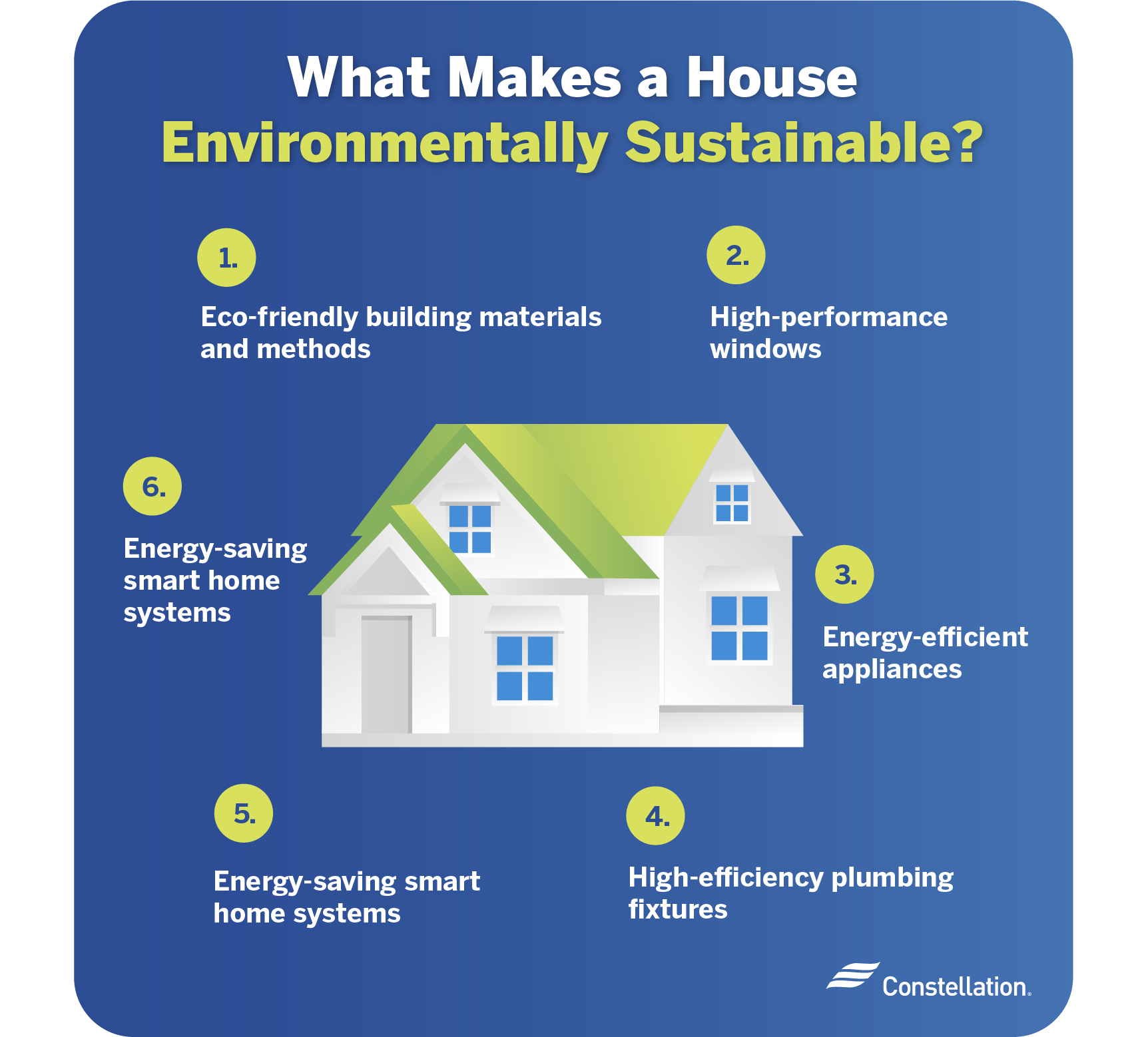
Empowering Homes: The Era of Sustainable Home Power
In the age of environmental consciousness, sustainable home power solutions have become a beacon of change. This article delves into the transformative landscape of green energy, exploring how sustainable home power is reshaping the way we think about energy consumption, environmental impact, and the future of residential living.
The Rise of Green Energy Solutions: A Paradigm Shift
Sustainable home power marks a significant paradigm shift in the energy landscape. As traditional sources dwindle and environmental concerns grow, the adoption of green energy solutions gains momentum. Solar, wind, and other renewable sources are increasingly harnessed to power homes, reducing reliance on non-renewable and environmentally detrimental energy sources.
Solar Power’s Dominance: Harnessing the Sun’s Abundance
Among sustainable home power options, solar power stands out as a dominant force. Solar panels, installed on rooftops, capture sunlight and convert it into electricity, providing a clean and abundant energy source. The efficiency and affordability of solar technology make it a frontrunner in the quest for sustainable home power solutions.
Economic Benefits for Homeowners: Savings and ROI
Sustainable home power translates into tangible economic benefits for homeowners. While the initial investment in solar panels or other renewable energy systems may seem substantial, the long-term savings on electricity bills and potential return on investment (ROI) make it a financially sound decision. Government incentives and tax credits further sweeten the economic deal.
Environmental Impact: Reducing Carbon Footprints
One of the most compelling aspects of sustainable home power is its positive environmental impact. By generating electricity from renewable sources, homeowners significantly reduce their carbon footprints. The shift away from fossil fuels contributes to lower greenhouse gas emissions, mitigating climate change and fostering a cleaner, healthier environment.
Grid Independence and Energy Security: Taking Control
Sustainable home power systems offer a degree of grid independence, allowing homeowners to take control of their energy production. With energy storage solutions like batteries, excess energy generated during sunny days can be stored for use during periods of low sunlight. This not only enhances self-sufficiency but also provides a buffer during grid outages.
Technological Advancements: Enhancing Efficiency and Accessibility
Technological advancements play a crucial role in the evolution of sustainable home power. Ongoing innovations in solar panel efficiency, energy storage solutions, and smart home technologies enhance the overall efficiency of green energy systems. These advancements make sustainable home power more accessible, efficient, and attractive to a broader range of homeowners.
Community Impact: Fostering a Green Neighborhood
The adoption of sustainable home power goes beyond individual homes; it fosters a sense of community and shared environmental responsibility. Neighbors joining hands to invest in renewable energy solutions create green neighborhoods. This collective effort amplifies the positive impact, contributes to community resilience, and sets the stage for wider sustainable practices.
Government Initiatives and Policies: Catalysts for Change
Government initiatives and policies play a pivotal role in accelerating the transition to sustainable home power. Incentives, tax credits, and supportive regulations encourage homeowners to invest in green energy solutions. These policy measures act as catalysts for change, promoting the widespread adoption of sustainable practices in residential areas.
Educational Resources: Empowering Homeowners to Choose Green
Empowering homeowners with knowledge is essential for the widespread adoption of sustainable home power. Educational resources that explain the benefits of green energy, provide guidance on system selection, and offer insights into financing options enable homeowners to make informed choices. Education becomes a powerful tool in the journey towards a sustainable energy future.
Explore Sustainable Home Power Today
Ready to explore the transformative possibilities of sustainable home power? Visit Sustainable Home Power for a wealth of resources, guides, and insights. Whether you’re considering solar panels, wind turbines, or other green energy solutions, the available information will empower you to make sustainable choices for your home, contribute to a greener planet, and be part of the renewable energy revolution.
